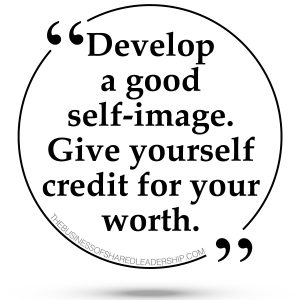“Love yourself first and everything else falls into line.”
—Lucille Ball
 In January of 1988 I drove from Bowdoin College to Bridgton Academy to interview for a teaching and coaching job.
In January of 1988 I drove from Bowdoin College to Bridgton Academy to interview for a teaching and coaching job.
Upon arrival I found myself sitting on the less powerful side of a large oak desk. Bob Walker, the headmaster, sat opposite me. He greeted me warmly, then paused to light his pipe. Time took a backseat as Mr. Walker puffed the tobacco to life. A cloud of smoke gently rose and separated us before drifting away. Once he was satisfied, he turned his attention my way.
The interview went as I had anticipated, until the final question. I was prepared to teach American history, having studied it. I felt qualified to coach the basketball team, having played it. But his final query caught me off guard.
“Kevin, we also have a Russian and Soviet history teaching position that needs to be filled. Can you teach that as well?”
I paused, but only momentarily.
“Yes, sir, I can.”
It didn’t seem to bother Mr. Walker that I had never studied Russian history.
“Well, then, I guess you’re hired,” he replied.
***
As it turned out, my first year of teaching would be Mr. Walker’s last. He retired that spring, ending a distinguished career.
In the 1989 school yearbook, the affable, tweed-jacketed, pipe-smoking headmaster wrote the following message to the student body:
I ask you to take heart in the living of your life, to continue the human tradition of courage and unconquerable spirit. Toward attaining and maintaining these attributes I offer the following suggestions:
#1. Be a friend to your fellow man.
#2. Be willing to try new things. Seek them out.
#3. Be a person of quality. Choose excellence in whatever you do.
#4. Develop a good self-image. Give yourself credit for your worth.
Below his short yet powerful message, Headmaster Walker added an excerpt from a poem by Emily Dickinson:
We never know how high we are
Till we are called to rise;
And then, if we are true to plan,
Our statures touch the skies—
The Heroism we recite
Would be a daily thing,
Did not ourselves the Cubits warp
For fear to be King—
Mr. Walker then closed with a final challenge:
As you leave Bridgton Academy, I ask you never to fear to be king.
Several weeks ago, I found myself thumbing through that very yearbook. As a twenty-three-year-old first-year teacher, Mr. Walker’s message had not caught my attention. Yet now, over thirty years later, his guidance resonated and gave me pause.
Develop a good self-image. Give yourself credit for your worth.
Wow, I whispered to myself. How powerful! Could there be a more poignant piece of advice? Mr. Walker’s humble guidance cut to the heart of the human challenge of acknowledging the sacredness that dwells within us all. The Sioux refer to every child as being Wakan Yeja (sacred and holy).
I ask you never to fear to be king.
Hierarchy has dominated human society since the birth of agriculture. Implied in that hierarchy is the superiority of those at the top of the religious, political, racial, or economic ladder. Through this superiority, their stories suggest, comes the right to rule and direct others.
The consequences of this false hierarchy are highly visible in many places today, including the Pine Ridge Indian Reservation in South Dakota. For generations, the people who lived there were systematically indoctrinated into feeling they were inferior. They were taught to never expect to be king.
My good friend Catherine Grey Day perhaps said it best one evening when she shared the following: “It’s just about being worn down, generation after generation. The cavalry, the missionaries, the government, the boarding schools—you wake up one day and it has all been internalized. When you have been oppressed over generations, it finally takes hold. The oppression takes hold within you, and we act out the oppression on ourselves. That is how deeply it has been ingrained.”
The goal of a new, shared leadership model is to help everyone to claim their rightful place as king. There may always be high priests, professors, chief executives, and presidents, but the way they use their influence must change.
It’s time to redefine what it means to be king. This title belongs to us all at birth. As the Sioux say, every child is sacred and holy. Every child is king. But for this reality to manifest, we must help others recognize where the right to be king resides. Claiming this title is an inside job. In the end, you must bestow the honor upon yourself.
“Give yourself credit for your worth,” Mr. Walker reminded us. “Never fear to be king.”
“Beauty begins the moment you decide to be yourself.”
—Coco Chanel
***
Thank you for considering my thoughts. In return I honor yours.
Every voice matters. Nestled between our differences lies our future.